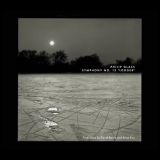Die Filharmonie Brno hat auf ihrem Hauslabel die 12. Symphonie, Lodger, von Philip Glass aufgenommen, ein Auftragswerk des Los Angeles Philharmonic, das 2019 uraufgeführt wurde.
Basierend auf dem Album Lodger des Popkünstlers David Bowie ist das der dritte Teil der Bowie-Trilogie von Glass, die den Komponisten bereits für zwei Symphonien inspirierte. Im Unterschied zu den vorangehenden Symphonien ließ er sich jedoch nicht von der Musik, sondern nur von den Texten inspirieren. Aus dem Album Lodger wählte er in neuer Reihenfolge sechs von Bowies Liedertexten aus und setzte sie in einen neuen musikalischen Kontext.
Die Sängerin Angélique Kidjo, die das Werk uraufführte, ist auch auf dieser CD zu hören.
Die Symphonie ist eine Art Liederzyklus mit Orchester und Orgel, in dem in dieser Aufnahme die Stimme von Kidjo sehr im Vordergrund steht und den an sich reichen Orchestersound in den Hintergrund verdrängt. Und dabei ist der Gesangspart nicht viel mehr als ein Sprechgesang, der mir einfach nicht gefallen will. Das postminimalistische Stück empfinde ich zudem als ziemlich zusammenhanglos, denn es fehlt ihm an musikalischer Aussage, ja, es macht einen etwas abgedroschenen und zu sehr auf Effekte ausgerichteten Eindruck.
The Filharmonie Brno has recorded Philip Glass’ 12th Symphony, Lodger, on its own label, a work commissioned by the Los Angeles Philharmonic and premiered in 2019.
Based on pop artist David Bowie’s album Lodger, this is the third part of Glass’ Bowie trilogy, which has already inspired the composer to write two symphonies. However, unlike the previous symphonies, he was not inspired by the music, but only by the lyrics. From the album Lodger, he selected six of Bowie’s song lyrics in a new order and placed them in a new musical context.
Singer Angélique Kidjo, who premiered the work, is also featured on this CD.
The symphony is a kind of song cycle with orchestra and organ, in which Kidjo’s voice is very much in the foreground in this recording, pushing the orchestral sound, rich in itself, into the background. And yet the vocal part is not much more than a Sprechgesang that just doesn’t appeal to me. I also find the post-minimalist piece rather incoherent and lacking in musical statement; indeed, it makes a somewhat hackneyed and overly effects-oriented impression.






















